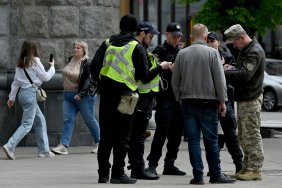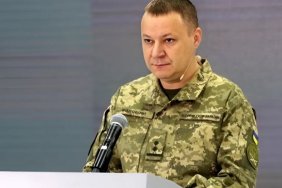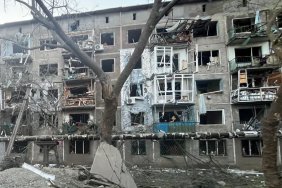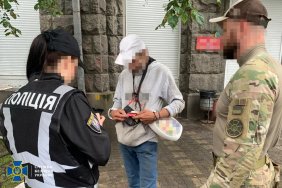Police officers in Ukraine can detain a Ukrainian and take him to the TCC if he does not have documents of a person liable for military service. This was stated by the head of the National Police Ivan Vyhovskyi.
“First of all, when checking a person's documents, a police officer needs to find out what is missing. If a person does not have military registration and identity documents during the check, the police officer may carry out administrative detention to identify the person,” he said.
Vyhovskyi noted that such detention can take no more than three hours.
According to him, if a citizen has an identity document, but no document from the TCC, the police officer “documents this fact, and then sends the materials to the TCC in order to provide a legal assessment of the person's actions.”
“Another case: if a police unit receives a request from the TCC in the prescribed manner about this person, then the police officer has the right to carry out administrative detention and bring him to the relevant TCC” the head of the National Police explained.
He emphasized that a person liable for military service may also be taken to a TCC if a police officer stops a violator of the rules of military registration and mobilization legislation (Articles 210 and 210-1 of the Code of Ukraine on Administrative Offenses).
“The police are authorized to apply coercive measures. The type and limits of such measures depend solely on the scope of the person's illegal actions. Usually, if the person's involvement in committing crimes is not established, coercive measures such as physical force and special means (handcuffs, rubber and plastic batons) may be applied to a person who maliciously disobeys a lawful demand of a police officer,” Vyhovskyi said.
He also emphasized that such a concept as “door-to-door visit” is not defined at the legislative level, but “if a person is wanted, the police have the right to come to the address of residence.”
The journalist also asked how the police would act in a situation where a man is driving on an urgent matter and is stopped.
“If a person is an offender, then the measures that will be taken against him will not make a difference compared to other violators of Ukrainian legislation. The punishment should be immediate and inevitable. However, situations can be different, so each of them is determined individually, taking into account the circumstances that have arisen and need to be resolved,” explained the head of the National Police.






